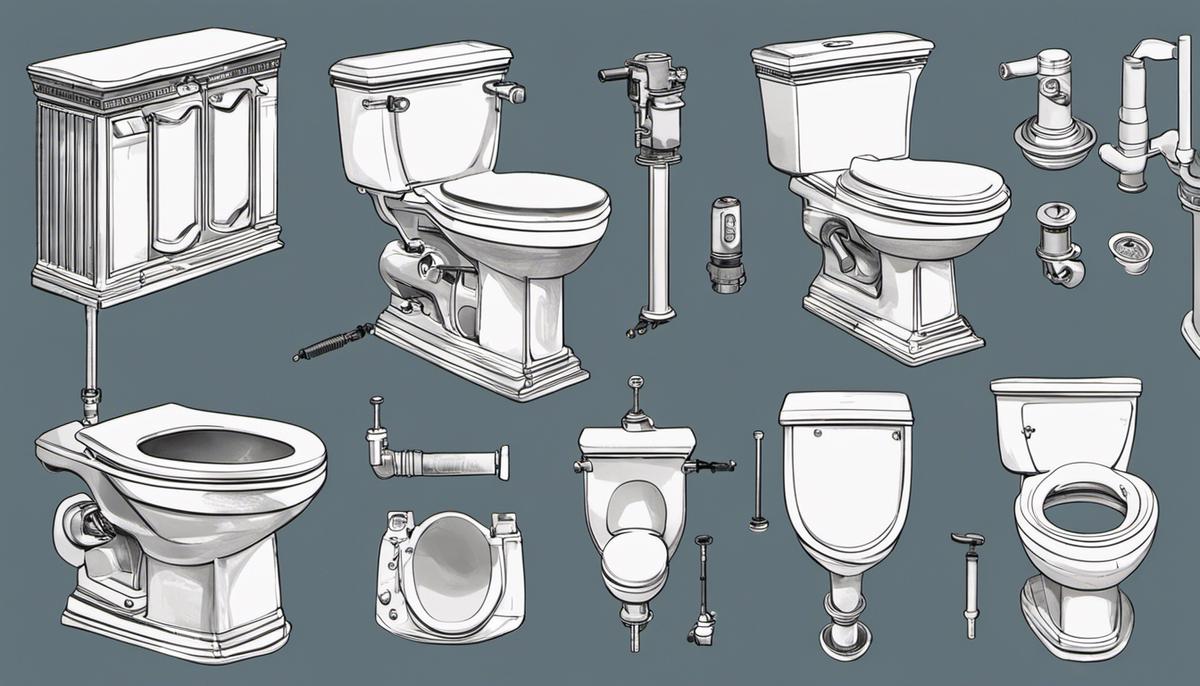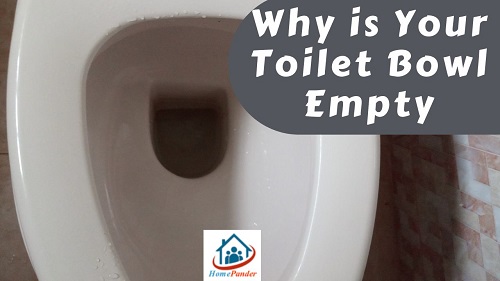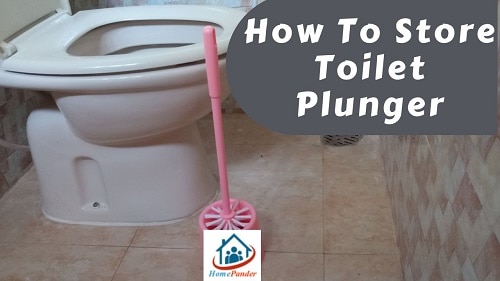Can you use bathroom cleaner on kitchen countertops? I have asked myself that question before, and I thought I knew the answer way back when. I thought that it was alright since I was at that age when I couldn’t be bothered to expend more effort on the overall subject of household cleaning. Cleaning was hard enough, thank you very much.
But then years later (don’t ask how many years, as that’s not polite), I found out that I was wrong. Now I know: using a bathroom cleaner to clean the kitchen countertop isn’t really the best idea. The same goes for using a kitchen cleaner to clean the bathroom.
What’s So Different about the Bathroom and the Kitchen?
At first glance, there doesn’t seem to be much difference between the bathroom and the kitchen—at least from the cleaning point of view. They’re both special rooms that can get quite dirty, so you need to clean them more frequently.
Heck, the kitchen countertops even resemble bathroom tiles often. That should mean that the cleaners for the bathroom should work for the countertops too, but it actually doesn’t.
What you have to keep in mind is that these rooms are actually very different. We bathe in the bathroom, getting rid of dirt and grime from our bodies, while we also get rid of bodily waste. With all that, you can be very sure that there are lots of residual germs that still linger in the bathroom after you use it. All the germs don’t magically go down the drain or down the toilet.
That makes the bathroom germ concentration much greater, compared to the rest of the house. That’s even true when compared to the kitchen, which may seem dirtier at first. The truth is, there are still more germs in the bathroom than in the kitchen, even though the food scraps may lead to the growth of harmful microbes.
The kitchen is actually cleaner than the bathroom—you just can’t see the germs with your naked eyes. That’s what “microscopic” means.
What that means is you don’t really need super-powerful cleaners for the kitchen. A relatively milder cleaner will do just fine. You also don’t want cleaners that won’t contaminate the food preparation that goes on in the kitchen.
Meanwhile, you can reserve those super-strong cleaners for the bathroom where there are plenty of germs to kill. You don’t have to worry about food contamination, though of course you still want cleaners that are safe to use.
Different Cleaners
Now that we recognize that the bathroom is dirtier and with more germs to deal with, we can get a clearer idea of the appropriate cleaners for the bathroom and kitchen, along with their respective features.
Bathroom Cleaners
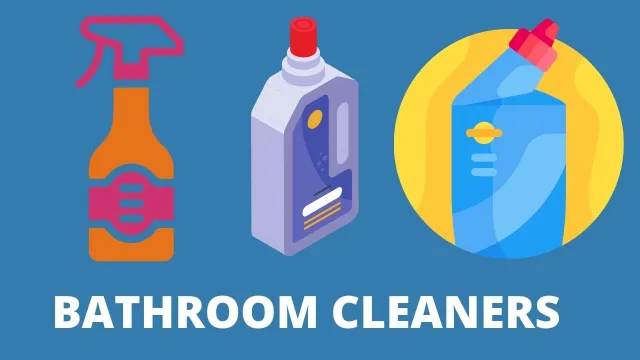
Basically, bathroom cleaners are stronger. They contain more chemicals, and these chemicals are just more potent. The level of toxicity is quite a bit higher compared to kitchen cleaners. You really don’t want any of this to contaminate your food.
These cleaners are also specifically designed for use in cleaning toilet bowls, sinks, and bathroom tiles. Even if you have the same tiles in your kitchen, these cleaners are just better for the bathroom. They’re meant to deal with body waste, soapy and grimy water, and mineral deposits that come from hard water. These things can stain the surfaces in the bathroom, and the cleaners are made to be strong enough to get rid of these stubborn stains and kill all the lingering germs.
Kitchen Cleaners
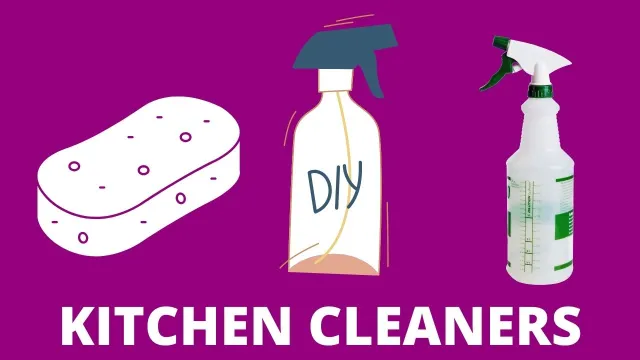
When you use these cleaners in the kitchen, you expose them to food scraps. You also expose the cleaners to the oil and steam. So, you need the cleaners to have milder formulations, so you don’t end up with dangerous contamination.
At the same time, the cleaners still have to be strong enough for actual cleaning. You need cleaners that can cut through grease as well.
It’s also true that for commercial kitchens, your regular mild kitchen cleaners may just not be enough. The risk is too great, that you may end up violating some codes. So, that means you should get some real kitchen cleaning professionals to do some heavy-duty deep cleaning every now and then.
Using Bathroom Cleaners for Kitchen Countertops
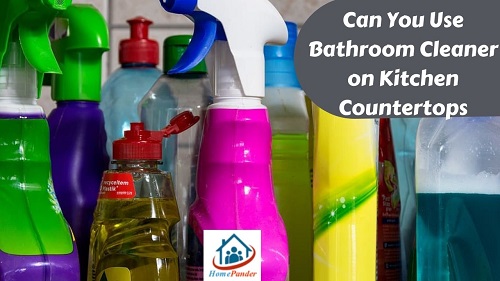
You don’t want to do this, because the chemicals in bathroom cleaners are just too powerful—in other words, they’re too toxic. These chemicals generally include bleach. There’s always the chance that you’ll leave some bleach residue that can end up contaminating your food.
There are exceptions to this rule, of course. But to make sure of that, you have to carefully check the ingredients. It’s just that it’s much safer to just buy and use kitchen cleaners for kitchen counterparts. There’s a lower chance of getting things wrong.
There’s also the financial aspect of using bathroom cleaners for kitchen countertops. In general, these bathroom cleaners are more expensive. So, it doesn’t make sense to use them, when they’re also more dangerous and therefore inappropriate. Stick to kitchen cleaners, and save money as well as the health of the people in your home.
Using Kitchen Cleaners for the Bathroom
This doesn’t make sense, either. This is because the kitchen cleaners are so mild that they’re not just strong enough to deal with all the icky stuff you can find in the bathroom. They won’t be able to effectively kill the vast majority of germs.
These cleaners are just not toxic enough. Kitchen cleaners simply don’t have the necessary ingredients. Try using them on bathroom stains, and you’ll quickly realize the futility of this.
What About All-Purpose Cleaners?
If you go online, you may be able to find some “all-purpose” cleaners that are supposed to work for both kitchens and bathrooms. That may be true, technically, but this isn’t really the ideal solution. Basically, the “scoring” looks like this:
| Cleaner | Kitchen Use | Bathroom Use |
| Bathroom Cleaner | 0 | 10 |
| Kitchen Cleaner | 10 | 0 |
| All-Purpose Cleaner | 5 | 5 |
It’ll work, but it sure isn’t perfect.
FAQs
How do you clean granite countertops?
Use warm, soapy water and some soft cloths to wipe the surface, and rinse the granite countertop thoroughly. It’s possible that you can use an extremely mild bleach solution for stubborn stains. Just don’t use scrub pads and other abrasive materials that may scratch the surface
What about laminate countertops?
Use a non-abrasive kitchen cleaner or just warm, soapy water. Use a soft toothbrush (an old one will do) to wipe along with the metal edgings and the seams. A very mild bleach solution may be an alternative, but be careful. This may cause some surface damage, such as change the countertop laminate color. Try it first on an inconspicuous spot.
Stone countertops?
If your countertop is made with soapstone, slate, or limestone, clean it with warm, soapy water. To get rid of stains, use baking soda and water to make some paste. Use a soft brush with the paste to scrub the area, and you may have to do this several times to get rid of the stain.
Butcher-block countertops?
Use a solution of water with mild dishwashing liquid, along with some soft cloth or clean sponge. Then use the soft cloth to dry the wood.
You may have to deal with the bacteria left behind by your raw meat. To kill those germs, use a gallon of warm water and mix in a single tablespoon of bacteria. Wash and dry using the mild dishwashing liquid.
For stains, deal with it immediately. Blot up as much of it as you can, to keep it from sinking deeper into the wood.
For light stains, sprinkle on some salt, and then scrub the spot with the cut side of half a lemon. If that doesn’t work, let it sit overnight then rinse it with water and dry with a clean cloth.
If you have a dark stain, dab it with a cotton swab that’s been dipped in a 3% hydrogen peroxide solution. If that doesn’t lighten the stain, just sand it then refinish it.
Ceramic tile countertops
Rinse it thoroughly, or else you’ll leave some soapy film on the surface. To prevent this, add a bit of white vinegar to the water when you clean this. Don’t use abrasive stuff.
The tile may not stain easily, but the grout will. Use a mild bleach solution and a toothbrush, to get rid of the bacteria. Then use a commercial grout sealer.
Final Word
So, can you use bathroom cleaner on kitchen countertops? The answer is no. Technically, you can (you smartass), but you shouldn’t.
The same goes for using a kitchen cleaner for the bathroom. Just no.
As it turns out, it’s much better to just use the cleaners for the purpose they were made for. After all, it’s all right there in the name.
Bathroom cleaner—use this for the bathroom.
Kitchen cleaner—use this for the kitchen.
Isn’t that just simpler?



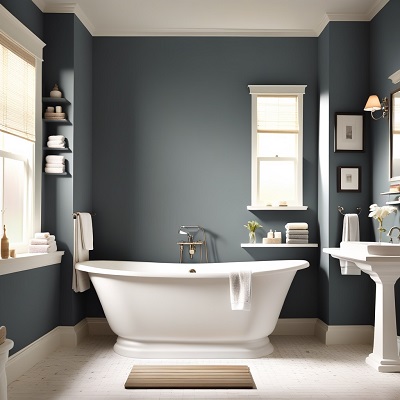
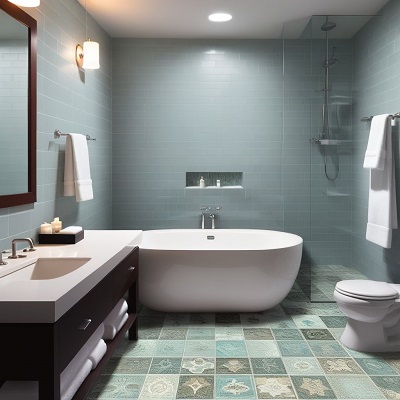

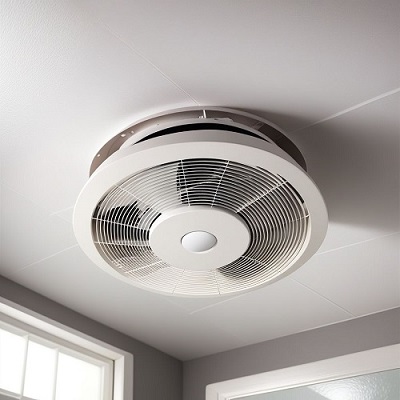
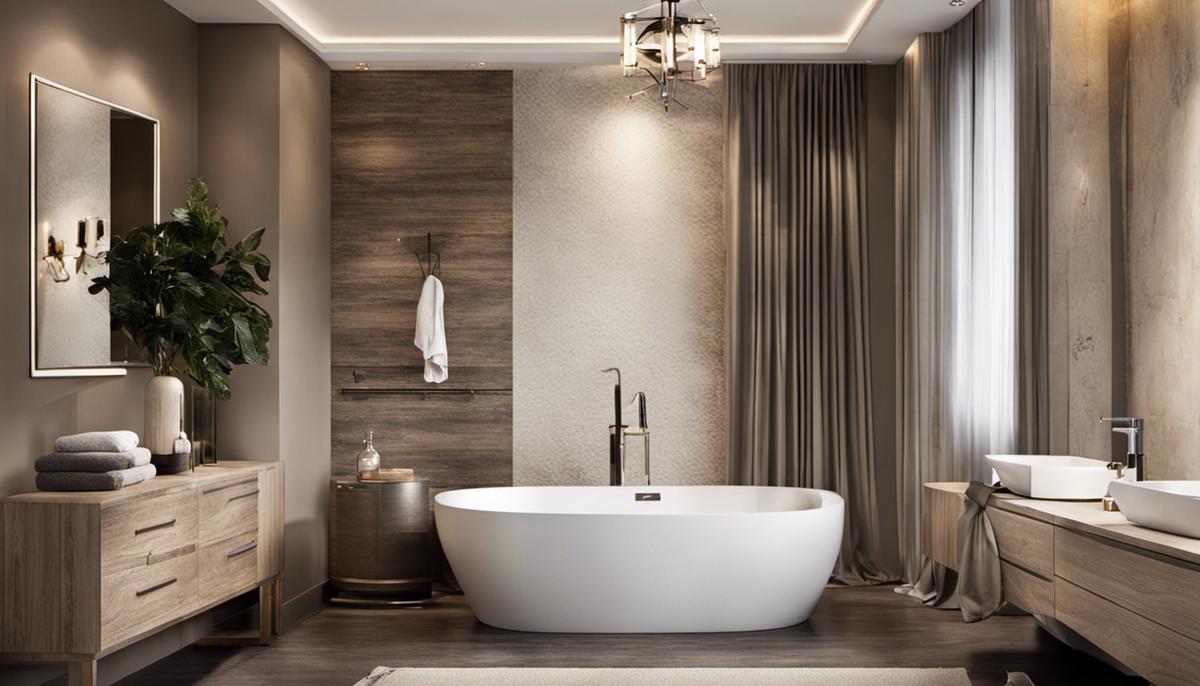


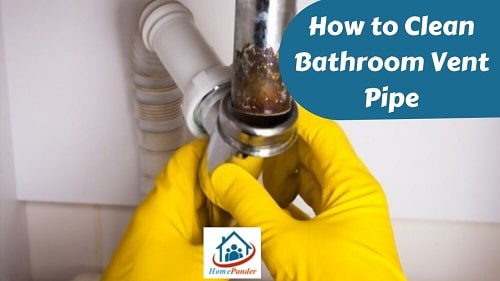
![How To Clean Dark Grout That Has Turned White [5 Easy Ways]](https://homepander.com/wp-content/uploads/2021/12/How-To-Clean-Dark-Grout-That-Has-Turned-White.webp)

![How to Remove Crystallized Urine [Explained]](https://homepander.com/wp-content/uploads/2022/02/How-To-Remove-Crystallized-Urine.jpg)
